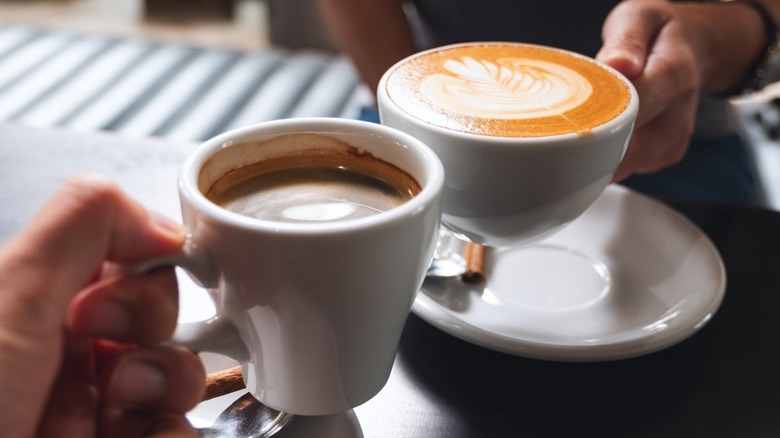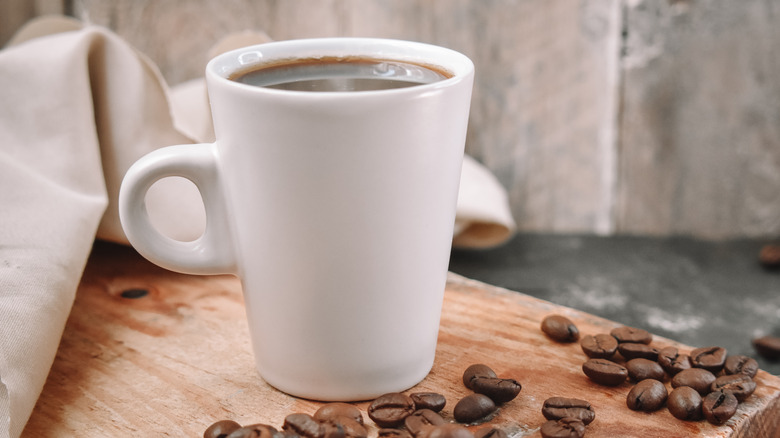The Real Reason Coffee Makes You Need To Use The Bathroom More Often
Coffee lovers likely know what happens after they've had their fix. They become more alert, per WebMD. Depending on how much they've had, they may also get a bit jittery. And then there is that urgent need to visit the bathroom, which they can only hope doesn't come at the wrong place or a bad time.
Before you cuss out your java habit and wonder whether it's time to swap coffee for tea, know that the substance that's causing your bathroom urge isn't specifically the coffee, but something in it — and that's caffeine. While coffees have caffeine levels that range from 60 milligrams per teaspoon of instant, to 150-200 milligrams for a cup of brewed or a shot of espresso, caffeine is also found in other foods and beverages such as black tea and chocolate, per Norman Urology.
Because of this, quitting coffee to take up tea may cut the amount of caffeine you're taking in, but it may not be enough to keep you from spending lots of time in the bathroom. Particularly if you're drinking more tea just to get the same caffeine hit that you would get from a cup of coffee.
But why does caffeine create those urgent bathroom visits?
Caffeine stimulates body parts that trigger bathroom urges
Caffeine doesn't just give you a jolt. It also affects your bladder, which holds fluid your body needs to expel. Medical experts tell Huffpost that caffeine specifically stimulates the detrusor muscle in your bladder. At the same time, it tells your brain that it is time to hit the toilet before an accident can occur.
Rena Malik, a urologist and assistant professor at the University of Maryland School of Medicine, describes caffeine to HuffPost as "a bladder irritant, and when the bladder is irritated, it starts to contract. That contraction is what gives you that sense of what we urologists call 'urgency,' which is the sudden desire to go to the bathroom that you can't delay." This is one of the main reasons why many experts, like those at St. Joseph's Healthcare Hamilton, offer people tips for reducing caffeine intake.
If the bathroom urges after drinking coffee become disruptive, you may want to consider cutting back. But many experts advise against quitting cold turkey. St Joseph's recommends cutting coffee consumption by half a cup a day over a one- or two-week period. Caffeine addicts could suffer from withdrawal symptoms such as headaches while trying to quit what Norman Urology terms the world's most popular drug, and cutting down over time can help you avoid them.

